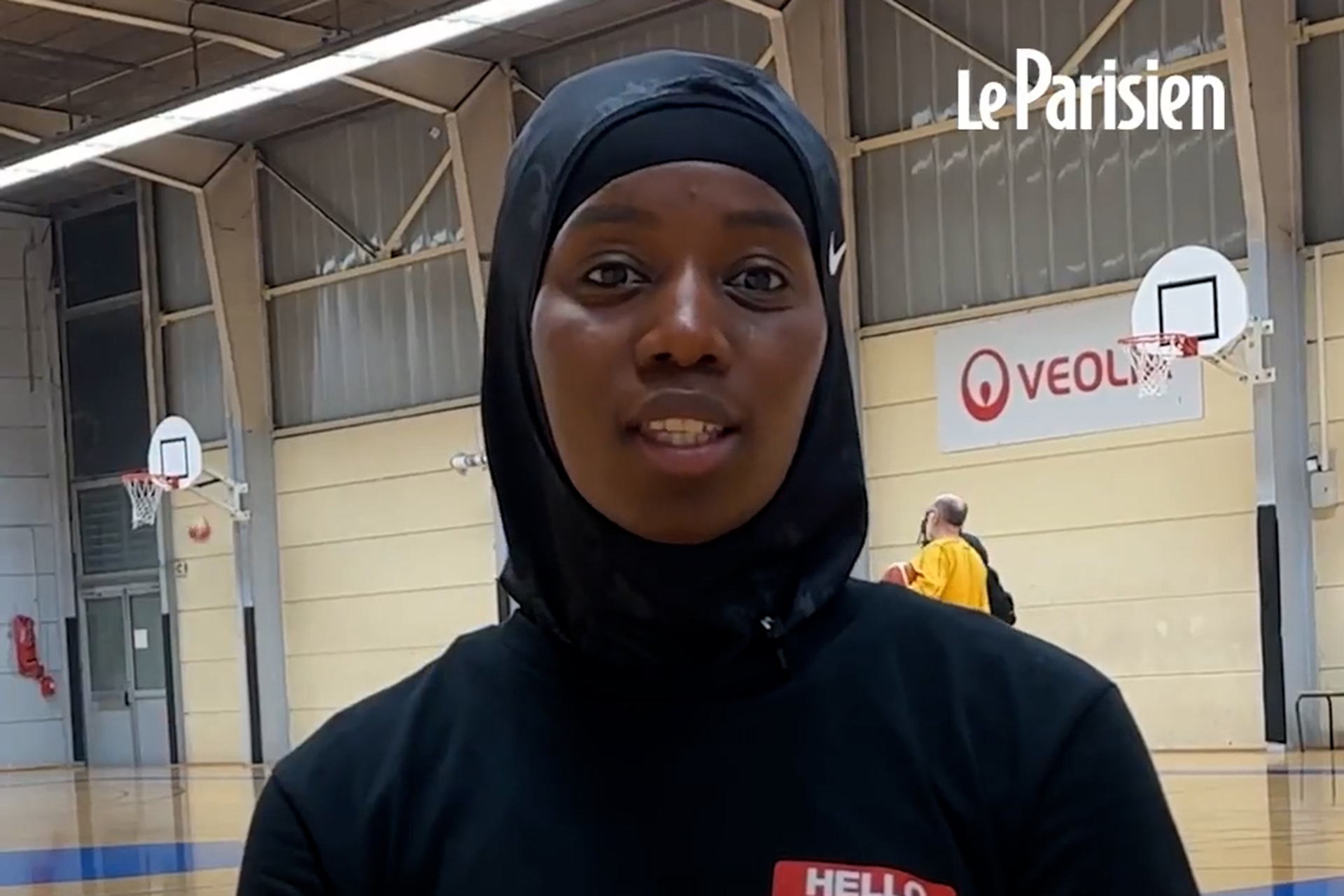A French referee refused the participation of Slimata Sella, 25, a basketball player at Aubervilliers Club in the Parisian suburbs, in the competition that was held in the city of Escauden, in northern France, because of her wearing a headscarf.
Although the competition was held in early January 2023, the local media did not shed light on the incident until two days ago, when the French newspaper “Le Parisien” revealed on Friday, January 26, 2023, that the match referee insisted before one of the matches. That Sila, a professional basketball player 13 years ago and who wore the hijab only 3 years ago, should remain on the bench and not enter.
Sela described what is happening with her as an "injustice," saying, "While the sports hijab is worn by many female players around the world, the French Basketball Federation bans it for female players in competition. However, the Paris Olympics 2024 will only allow foreign players to do so." .
« Je me suis sentie humiliée »: Basketteuse depuis 10 ans, Salimata a été exclue du terrain à cause de son voile
👉 https://t.co/oXa4A7igIO pic.twitter.com/Lvv3HYDw51
- Le Parisien (@le_Parisien) January 26, 2023
Sela told the French newspaper that she felt humiliated after this decision, "and she made great efforts in training to help her teammates win the match and made a long way to Haut-d'France (the venue of the match)."
For his part, club president Sebastian Marie Saint confirmed in press statements that Sulaimat Sila is one of the pillars of the team that he relies on in order to advance in competitions and achieve titles, explaining that he "cannot believe that officials prevented her from competing."
In the summer of 2022, Diaba Konate, a French basketball player who studies and plays in the United States of America, was prevented from playing in France during the "Open Plus" tournament organized by the French Federation in Polyguin (Loire Atlantic) because she also wore a headscarf.
Is the veil prohibited in the international laws of basketball?
On May 4, 2017, the International Basketball Association (FIBA) decided to allow female players to wear the hijab in matches, after a review process launched in September 2014 following the withdrawal of the Qatar women's team from the Asian Games.
The Qatari women's basketball team withdrew from its group stage match against its Mongolian counterpart in the Asian Games in Incheon, South Korea, after they were refused permission to play while wearing a hijab or any other head covering for safety reasons.
In the same year, six Sikh players representing India were forced to remove their traditional turbans before using rubber bands on their hair.
"The central office approved the proposal submitted by the technical committee that allows female players to wear the hijab," the federation said in a statement, noting that the new rule was developed "to reduce the risk of injury and maintain color uniformity with the rest of the equipment and clothing."
The new decision came into force on October 1, 2017, after its ratification by the FIBA General Assembly.
It is noteworthy that in football, the Football Association Board (IFAB), which enacts the laws of the most popular game in the world, officially allowed in March 2014 to wear the hijab and turban during matches.
The French Basketball Federation and the French Football Federation are the only two sports bodies that prevent the wearing of the hijab in their competitions, and at the global level France is an exception, as well as even at the European level.

